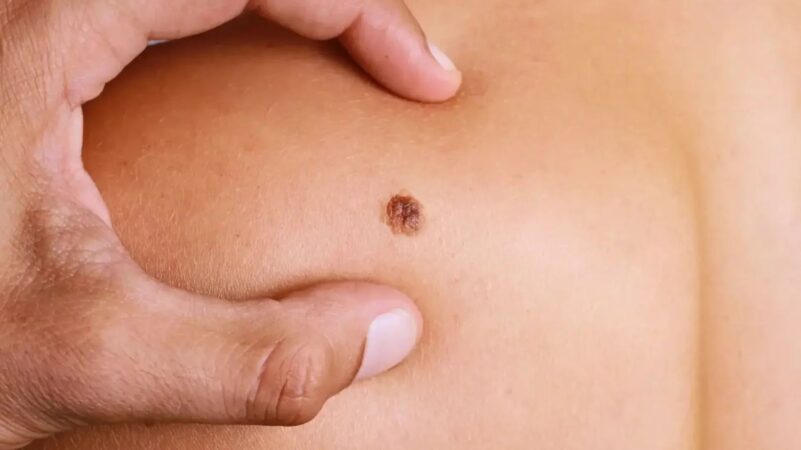The melanoma vaccine, which is in phase II clinical trials, has shown very promising results as part of an innovative mRNA therapy, which could be an effective solution to combat the disease.
The vaccine is being developed in cooperation with Moderna, in order to be used with another immunotherapy, KEYTRUDA from Merck. The collaboration between the two pharmaceutical companies aims to treat patients with high-grade melanoma, which has been surgically removed from the skin.
Late-stage trial data show that the two drugs together were able to reduce disease recurrence or death in the following three years by almost half (49%), compared to KEYTRUDA alone.
ScienceAlert also notes that the study conducted so far revealed that the combined treatment resulted in a 62% reduction in the risk of the cancer spreading or becoming fatal.
In a statement, Moderna Vice President Kyle Hollin highlighted the verification of “such strong clinical benefit,” while Merck’s Marjorie Green highlighted a commitment to “advancing research into innovative modalities in early-stage cancer.” Where we can make it happen.” The most significant impact for patients by combining Merck's immuno-oncology expertise with Moderna's innovative mRNA technology.
A phase 2b trial of the two drugs included 157 patients with high-risk, surgically resected melanoma. He received combination therapy or KEYTRUDA alone once every three weeks for one year.
According to the results, side effects were not significantly different from treatment with Keytruda alone: 50% of patients reported the most common symptoms, including fatigue, pain at the injection site and chills.
The combination treatment has proven so effective that the European Medicines Agency (EMA) and the US regulatory body the Food and Drug Administration (FDA) have already agreed to accelerate approval of the drug in the future.
It's not yet clear when that might happen, but a phase 2 clinical trial should show results by 2029.

“Wannabe internet buff. Future teen idol. Hardcore zombie guru. Gamer. Avid creator. Entrepreneur. Bacon ninja.”

